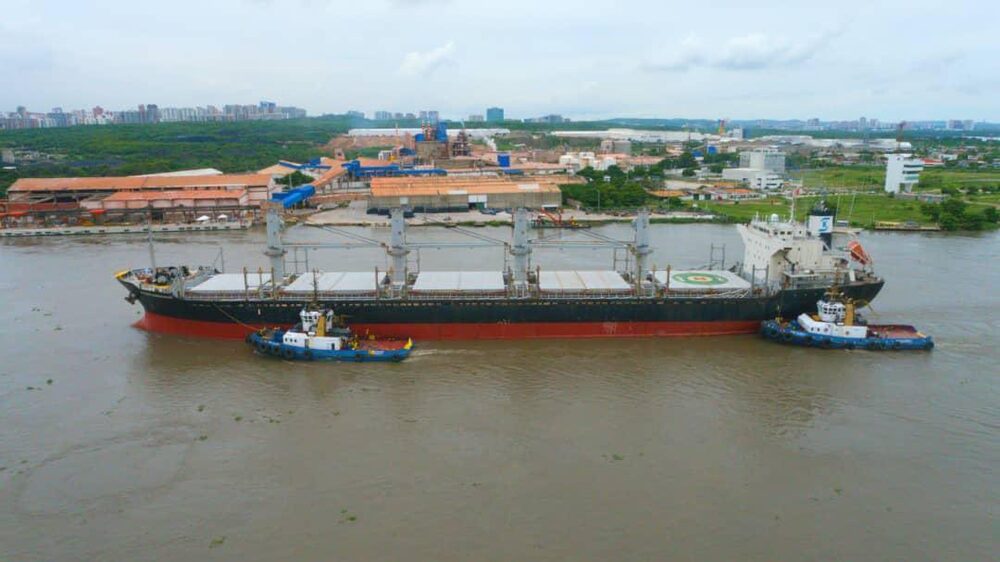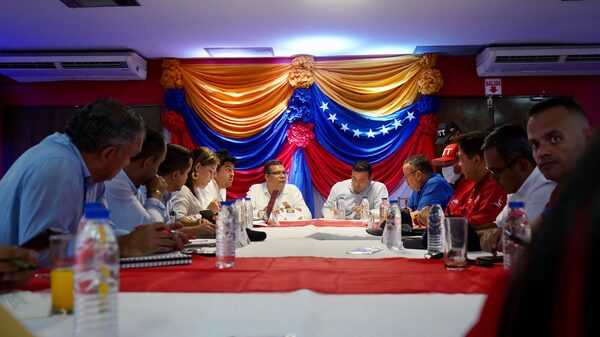Bogotá — The border between Colombia and Venezuela reopens this Monday after seven years of the two countries’ trade flow having been interrupted, and follows the arrival to power of Colombian left-wing President Gustavo Petro, which has marked a shift in the country’s foreign policy.
Colombia and Venezuela share a border of more than 2,219km, with the Simon Bolívar International Bridge, which connects Colombia’s Cucuta and Villa del Rosario with Venezuela’s San Antonio and San Cristobal, one of the most strategic crossing points.
Here are five keys to understanding why the reopening of the common border is key for Latin America:
1. A strong political message. But will it last?

The reopening of the border represents a strong political message in view of the changes that Gustavo Petro wants to mark, not only with the previous administration, but also with regards to wider Latin America, which has taken a turn to the left in countries such as Chile, Peru, Mexico, Argentina and Bolivia.
“The test of this process will be when President Petro leaves and that normality prevails beyond the political-ideological differences or closeness that the next president of Colombia may have,” Ronal Rodríguez, researcher and spokesperson for the Venezuela Observatory of the Universidad del Rosario, told Bloomberg Línea.
“Although Petro’s democratic left can achieve levels of dialogue with the authoritarian left of Nicolás Maduro, that does not mean that this will be sustained beyond [Petro’s] government, that is why we have to work on structuring a state response,” he added.
Rodríguez added that a balance must be sought in this new era of bilateral relations between the two countries, without reaching protectionist and controlling dynamics on the part of the state.
“Let’s remember that the dialogue and dynamics that took place between Colombia and Venezuela in trade matters were seriously affected when the Venezuelan regime decided to control the economy and expand the spaces of control that the State had.”
“In that order of ideas, therein lies the greatest challenge to achieve that, independently of the reopening and expansion of the market on the Colombian side, the processes of economic recovery of the Venezuelan private sector can be continued”, he said.
2. A new trade relationship

According to figures from the Colombian Ministry of Trade, Industry and Tourism, last year trade between Colombia and Venezuela closed at $394 million and this year it totaled $383 million to July.
Colombia’s Trade Minister Germán Umaña has said that the reopening of the border improves expectations since the binational trade figure could reach between $1 billion and $1.2 billion by the end of the year.
And in line with the forecasts of the Venezuelan government, Colombia does see the possibility that at the rate of recovery of that economy, trade between the two countries could reach $2 billion in 2023 and that by the end of the four-year period the goal of between $4 billion and $4.5 billion could be achieved.
3. The rekindling of tourism

Despite sharing a border, tourism between both countries was practically extinguished since flights were suspended due to the operational restriction issued by the Venezuelan aviation authority in March 2020.
But tourism will get a new lease of life with the reactivation of the sector starting this Monday when the first of 27 flights between now and December 30 is scheduled to take off. This Monday a flight by Venezuelan airline Turpial will take off from Venezuela to Colombia, while on October 4 the first commercial flight from Colombia to Venezuela will take off, operated by local airline Wingo.
According to figures from the Colombian Association of Travel and Tourism Agencies (Anato), between 2014 and 2015 alone, some 380,000 Colombians (annual average) traveled to Venezuela, while 250,000 Venezuelans entered the country during the same period.
In Venezuela the main destinations chosen by Colombians were Caracas, Margarita Island, Los Roques Archipelago, Colonia Tovar, among others, while on the Colombian side Bogotá, Norte de Santander, Antioquia, Bolivar and Atlántico stand out.
“The reestablishment of air routes will contribute to rekindling the offer of travel agencies. This, added to the good commercial conditions and the work carried out on investment and security issues, will make possible a good development of this industry between the nations”, according to Anato.
4. Improving border-crossing conditions

With the closure of the border, millions of Venezuelans and Colombians transiting through the border crossing were forced to use alternative, illegal routes, in many cases exposing themselves to various types of dangers amid the activity of criminal gangs for the control of drug trafficking and smuggling routes.
According to the Pulse of Migration Survey of Colombia’s statistics bureau DANE, 7.5% of Venezuelan migrants suffered or witnessed some incident such as a fight, robbery, kidnapping or capture during their border crossing. And 8.2% of people between 25 and 54 years old suffered or witnessed some incident.
“Regarding the type of incident, 40.3% said they suffered or witnessed theft or robbery, 37.4% witnessed the collection of money or bribes from people other than Venezuelan and Colombian officials, and 20.7% reported bribes and mistreatment from Venezuelan officials,” DANE said.
The reestablishment of relations between both countries will mean a relief for close to 1.8 million Venezuelans living in Colombia who remained disconnected from consular services. Proof of this reality is that the Venezuelan consulate in Bogotá is abandoned and practically in ruins since former Colombian president Iván Duque broke off relations with the neighboring country in 2019.
5. A complementary relationship in times of crisis

In the midst of the global logistics crisis, lack of fertilizer availability and high food prices, Colombia could recover a strategic commercial ally that will allow it to at least put out some fires.
Colombian ambassador in Venezuela, Armando Benedetti, on September 23 announced the arrival of the first ship with fertilizers from Venezuela, allowing it to face the shortage of the product and alleviate inflation.
“Already arrived in Barranquilla, at dock 1 of Monomeros, the ship with more than 16,000 tons of urea, at $600 per ton. This is great news for farmers, because they will save US$100 per ton,” the ambassador said on his Twitter account.
Colombia’s plan aims for this reopening of the border to trigger “a process of industrial, productive and service complementation between binational citizens”, which would result, according to Umaña, in an improvement in the fight against historical scourges in the area such as poverty and labor informality.
He said that strategy is “deeply institutional” and also aims at “making permanent a relationship” that projects in the long term, he said in an interview with Bloomberg Linea after his trip to Caracas.





